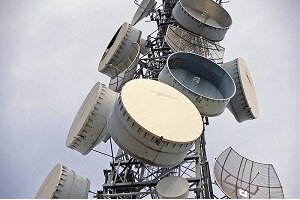
CC image courtesy of Bidgee.
In an attempt to escape his electromagnetic hypersensitivity ordeal, Zakhele Gininda has moved to a farm in rural KwaZulu Natal with his brother.
“I have no hope” Gininda told the Times Live while covering his ears.
“I gave up my trucking business in Witbank. I have almost stopped living and no doctor in South Africa can help me because they know nothing about electromagnetic hypersensitivity,” said Gininda.
Gininda has reportedly visited several different doctors in South Africa, but has yet to find an explanation as to the reason his head aches, his face feels ablaze, his ears buzz and his throat feels dry whenever he finds himself in or near Wi-Fi hotspots and mobile phones.
“No one can give me answers. When I tell the doctors about this, they brush it off. They make me feel like I am going mad. My medical aid funds are exhausted. I have spent thousands for medical tests and my life is at a standstill. I just want to feel normal,” said Gininda.
However, the Times Live reported electromagnetic hypersensitivity, despite it affecting approximately five per cent of the global population, is not classified as an official medical condition.
A global survey conducted by the World Health Organisation indicated some people fall ill when they are exposed to electromagnetic fields emanating from Wi-Fi, mobile phones, satellites and televisions.
In an attempt to find answers to his condition, Gininda reportedly approached the Independent Communications Authority of South Africa (ICASA).
The Electromagnetic Radiation Research Foundation of South Africa (EMRRFSA) has reportedly registered more than 300 people suffering with electromagnetic hypersensitivity and Tracy-Lee Dorny, chairperson of the EMRRFSA, believes there may be “thousands more who have no idea what is making them ill”.
The EMRRFSA has reportedly approached the South African government as well as the South African Human Rights Commission in an attempt to establish regulation to protect sufferers.
Furthermore, Richard Boorman, Vodacom spokesman, said the issue of electromagnetic hypersensitivity arises occasionally whenever objections to base stations arise.
The Times Live reported that in the United Kingdom (UK) people under the age of 16 are recommended to not use mobile phones while in France advertising mobile phones to children under 14 is prohibited.
The symptoms of electromagnetic hypersensitivity, according to the EMRRFSA, includes itching and burning skin, dizziness, nausea, heart palpitations, headaches, joint pain, sore kidneys, blurred vision, rapid weight loss or gain, sharp pain in the base of the spine or neck, loss of muscle strength, dehydrated skin, abdominal pains, ongoing gastro disorders, hair loss and tinnitus (ringing sound in the ears).


















